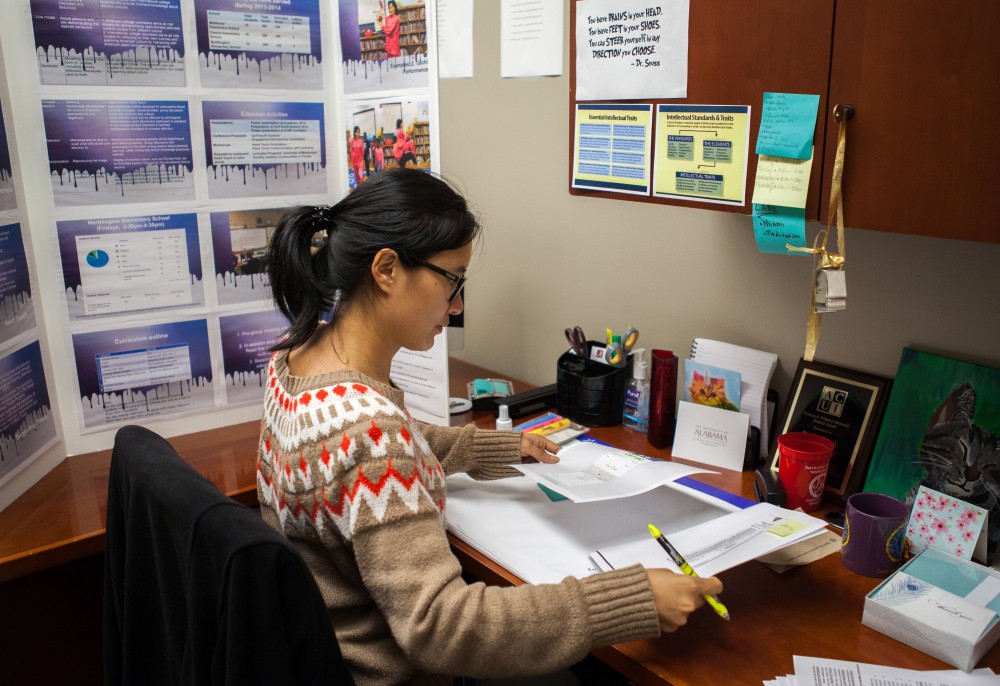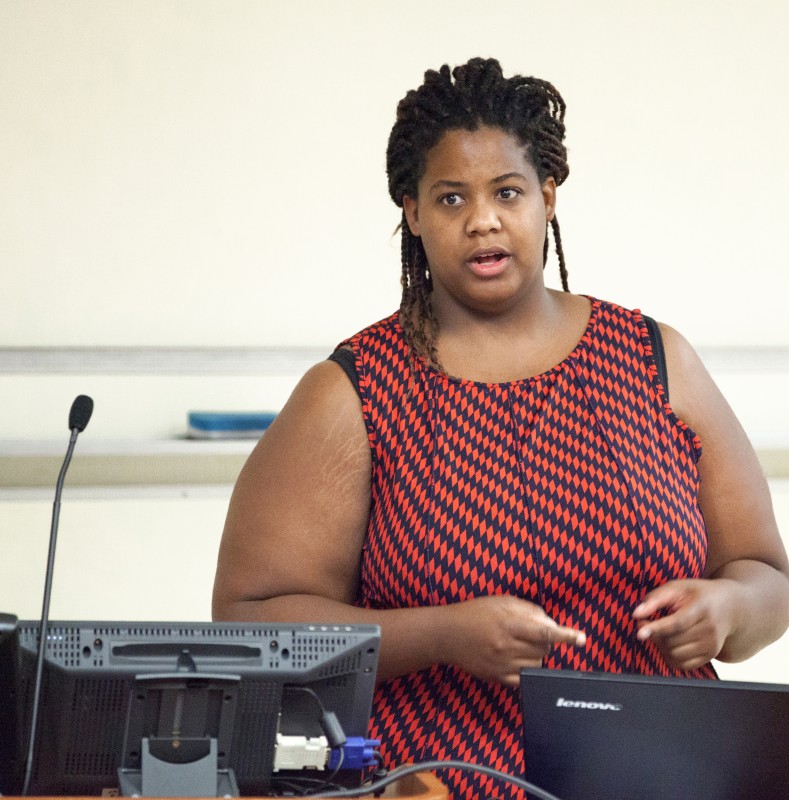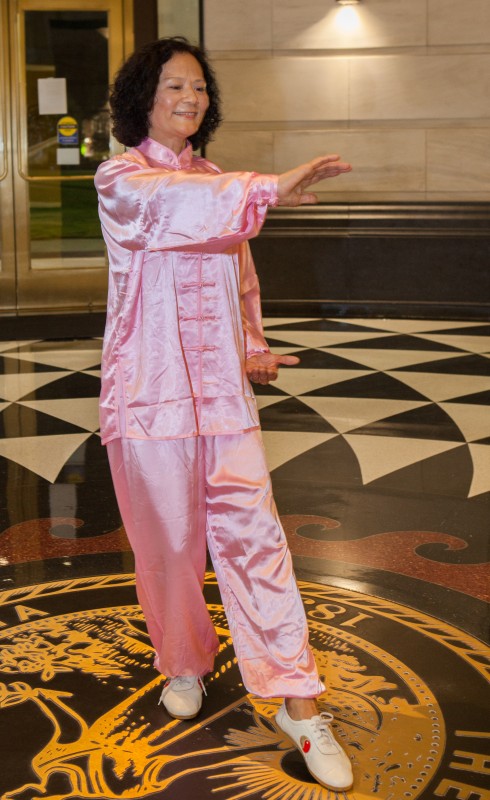Heart Touch Program, Chemistry Grad Student Collaboration Designed to Eliminate Career Stereotypes and Spread Cultural Diversity
By Peter Mullins
CCBP Student Assistant
Two university graduate students have begun a collaboration designed to change the stereotype of science and engineering as a career for white males only. While doing so, they also seek to educate the community about different cultures.
Fan Yang, a native of China, is a graduate student working in UA’s Crossroads Community Center. She is also a doctoral student in Social Work, who, along with Pandora White, an African-American graduate student in biochemistry, seeks to promote career opportunities in science regardless of race, sex and country of origin. Their efforts are part of Heart Touch, a program begun and directed by Yang for the past two years to enhance cultural competency and create greater understanding and knowledge between and among different ethnic groups.
Their most recent effort, on Oct. 12 in Shelby Hall on the UA campus, was entitled “#welooklikeresearchers.” Attendees were treated to dinner and a talk by White on career opportunities in science open to both men and women and to all racial and ethnic groups. White’s principal interest is in diabetes research.
“If people are rarely exposed to female or minority scientists,” she said, “they tend to think all scientists are male, white Americans. There are far too few female professors involved in STEM (science, technology, engineering and math) research at the university. Our collaboration is designed to address that image.”
White got the idea for the collaboration at a conference she recently attended where conferees were using the “#Ilooklikeanengineer” Twitter hashtag to raise awareness of white male domination in the sciences and engineering.
To emphasize the diversity of looks and interest within the science field, White reported on her trip abroad in Taiwan, where she was conductng research, and her subsequent trip couch surfing in Japan.
Following White’s talk, the audience was treated to a Tai Chi performance led by local instructor Ping Shi and her students.
Yang said future programs that address stereotypes and enhance cultural competency across race, gender and nationality are being planned.
Photos by Jianlong Yang


